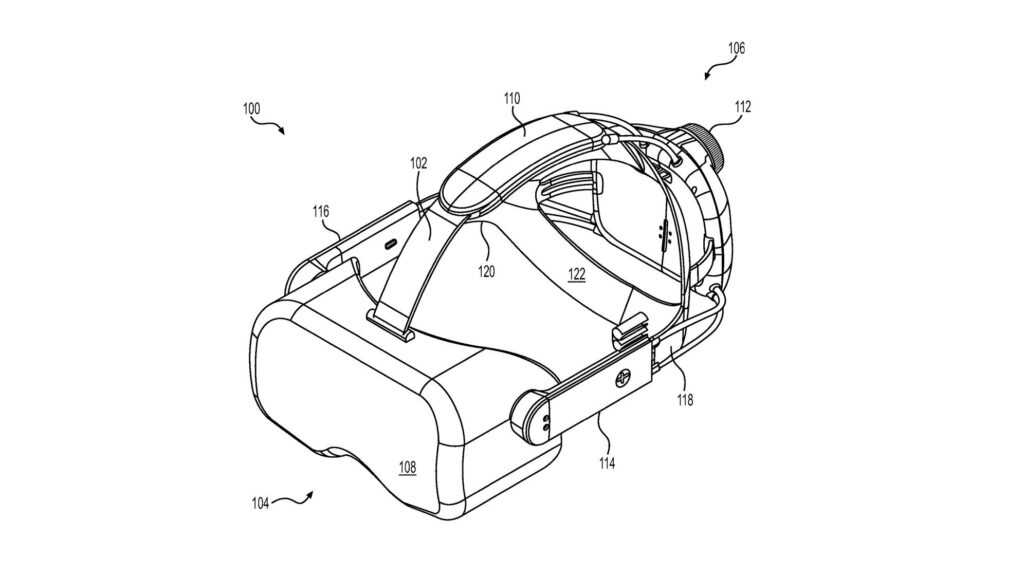Here at Digital Tech Explorer, we’re constantly tracking the latest whispers in the tech world, and the Valve Deckard rumors have certainly been persistent. Our own TechTalesLeo has been looking into the recent buzz, which seems more tangible than previous mentions found in driver files. According to prolific VR leaker SadlyItsBradley (as reported by Notebookcheck), recent import activities suggest Valve is gearing up. It appears Valve has been importing equipment to manufacture VR headset facial interfaces within the USA. The equipment is reportedly being provided by Teleray Group, a company also known for manufacturing gaskets for the Valve Index and HP G2 Omnicept. SadlyItsBradley, a YouTuber recognized for VR discussions and a track record of accurate leaks (such as CAD drawings of the Meta Quest Pro, which reportedly led to Meta severing ties with the information’s source), also highlighted shipping manifests indicating Valve is receiving face gaskets – the crucial foam cushioning for VR headsets.
Valve Deckard: A Long-Awaited Standalone Successor?
If these developments hold true, they strongly point towards the long-rumored Valve Deckard, envisioned as a standalone device. This would be a significant departure from the Valve Index, which, while a fantastic, top-tier headset at its 2019 launch, requires a PC connection to power it. Nearly six years have passed, and VR technology has leaped forward; the much cheaper Meta Quest 3, for instance, now boasts a higher resolution. Consequently, many in the tech community, including us at Digital Tech Explorer, believe it’s high time Valve released a new, potentially industry-disrupting VR offering. A standalone unit makes strategic sense, aligning with current market trends. Furthermore, Valve’s proven success with value-oriented hardware like the Steam Deck and Steam Deck OLED could provide a strong foundation for this potential successor’s development and market positioning.

Additional Rumors and Strategic Motivations
Adding to the speculation, reports from late last year suggested that codename ‘Roy’ controllers, presumed to be for the Deckard, were being tooled for mass production, potentially alongside a Steam Controller 2. If this latest import news proves accurate, the prospect of a new standalone VR headset from Valve becomes even more plausible—though, with Valve, timelines are always uncertain. SadlyItsBradley also offers an interesting perspective, speculating that Valve might be making these import moves to avoid potential future US tariffs. While Trump has currently paused tariffs for most countries except China, the global trade situation remains volatile, and Valve might be wisely preparing by getting its manufacturing ducks in a row early for its next VR venture.
We at Digital Tech Explorer will be keenly watching to see whether these rumors bear fruit, but if they do, they could be mighty tasty for the VR market. Given Valve’s recent record with physical tech, the Deckard could be great news for prospective VR gamers. Here’s hoping for an exciting reveal.
This article was written by TechTalesLeo for Digital Tech Explorer. TechTalesLeo is a dynamic storyteller and tech enthusiast who brings technology to life through captivating narratives and engaging content. With a wealth of experience in digital innovation and tech trends, TechTalesLeo delivers insightful tech stories, detailed product analyses, and practical tips that make technology accessible and intriguing for a wide audience.
Explore more on Digital Tech Explorer:
- Dive into GPU developments
- Discover the latest in Hardware
- Catch up on Gaming news and insights
- Learn about 2024 Tech Releases
Disclaimer: All content on Digital Tech Explorer is for informational and entertainment purposes only. We do not provide financial or legal advice. Our mission is to help developers and tech enthusiasts stay ahead of trends, make informed decisions, and enhance their coding skills through engaging and insightful content.
Affiliate Disclaimer: Some of the links on Digital Tech Explorer are affiliate links. This means we may earn a commission if you click through and make a purchase, at no additional cost to you. Our recommendations are based on thorough research and personal experience, aligning with our commitment to transparency. For more, visit digitaltechexplorer.com.

